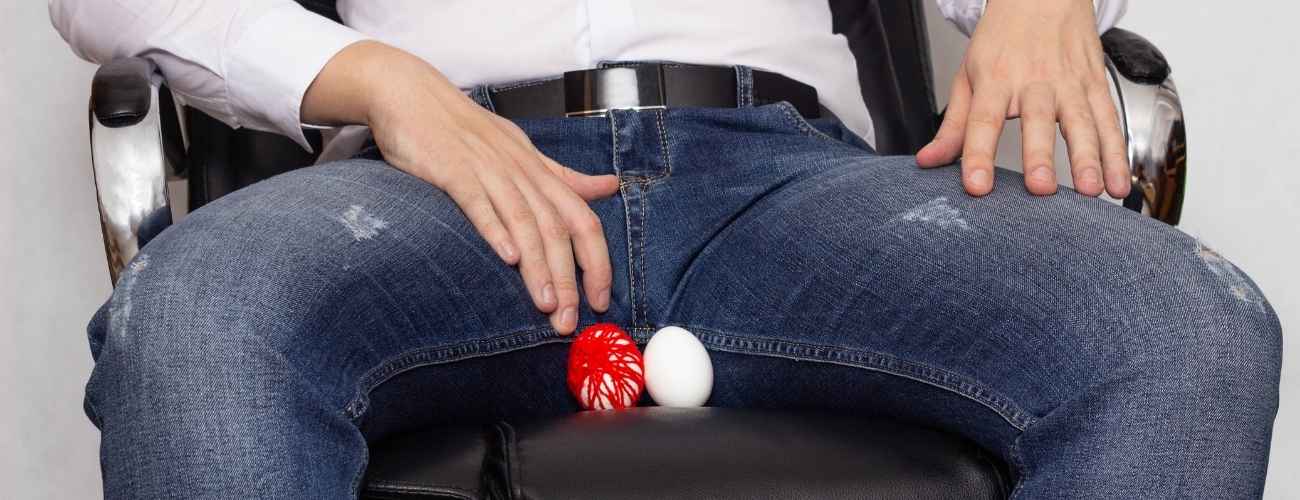
Varicocele Surgery
Varicocele is a condition where the veins responsible for draining dirty blood from the testicle become excessively dilated, leading to reflux in blood circulation. Varicocele is a type of disorder with a high potential for causing progressive testicular damage.
In diagnosing varicocele, various methods such as physical examination, scrotal Doppler ultrasound, venography, thermography, scintigraphy, and magnetic resonance can be used. However, diagnosis is usually made through physical examination, and additional imaging methods are typically not required.
However, due to the necessity of radiologically identifying the presence of varicocele, all tests must be conducted. When the disease is correctly diagnosed, treatment becomes more straightforward.
[ez-toc]
How is Varicocele Surgery Performed? Treatment Details: Operation: Varicocele Surgery Procedure: A small incision is made in the groin area, and the varicose veins are ligated Duration: 1 Hour Hospital Stay: 1 Day or Same-day discharge Anesthesia: Spinal anesthesia Recovery Time: 1-2 Days Return to Work/School: 7-10 Days Scarring: Yes Pain Duration: 24-48 Hours
Varicocele surgery can be described as making a 2-3 cm incision in the groin area to reach the testicular veins, where the dilated and clumped veins are tied off and removed. The surgeon decides where to make the incision.
Varicocele surgery can be unilateral or bilateral. Local or general anesthesia may be used. During the surgery, the veins leading to the testicles are identified, and the enlarged and dysfunctional veins are ligated to render them unusable.
Performing this surgery with a microscopic technique increases the chance of surgical success and reduces the risk of potential complications. However, the surgery lasts approximately 1 hour if no complications arise.
Because of this, it is a relatively quick and low-risk surgery. However, there are rare risks, such as infection, bleeding, or recurrence of the condition.
Additionally, after surgery, there is a slight chance of fluid accumulation in the testicles (hydrocele), and if hydrocele develops, the fluid may need to be removed surgically. Rarely, hardness may be observed at the incision site, but it will gradually disappear over time.
The patient is usually discharged the same day. They can return to daily life on the same day, but after the surgery, sexual activity and intense exercises should be avoided for 3 to 6 weeks as advised by the doctor.
Pain after surgery can be managed by using over-the-counter painkillers prescribed by your doctor or by wearing tight underwear to support the testicles. It is essential to maintain good communication with your doctor before and after the procedure.
Things You Should Know About Varicocele Surgery
Varicocele is the enlargement and clumping of veins in the testicles that disrupt the flow of blood. It can be seen in both testicles, but it is predominantly found on the left side. Varicocele can cause increased testicular temperature, release of harmful waste substances that damage sperm, and disrupt sperm count and function, leading to infertility. It is one of the leading causes of male infertility. Varicocele diagnosis must be made by a urologist, and a sperm test must be performed on the diagnosed male. Based on both the test result and physical examination, the indication for surgery can be determined. Varicocele surgery, called varicocelectomy, involves the removal of the varicose veins in the male reproductive area. The goal of this surgery is to eliminate abnormal veins around the testicle that cause improper blood flow and lead to testicular failure. Varicocele is not life-threatening but can sometimes cause low sperm count. Early diagnosis and treatment are necessary for the best outcomes. It can significantly affect male fertility. Varicocele may cause pain in the testicles and groin area. In Izmir, varicocele surgery involves making an incision of 3-4 cm in the groin area, exposing the spermatic cord and vein bundle, and then tying off and removing the varicose veins. Performing this procedure microscopically improves the success rate. Previously, surgeries were performed with incisions in the scrotum or higher up the groin area, but due to lower success rates, the standard procedure now involves an incision made at the lower level of the groin. The operation lasts 30-45 minutes. After surgery, sperm count and motility are typically checked in the third month with a sperm count test called a spermogram. After varicocele surgery, complications such as pain in the testicles, fluid accumulation around the testicles (hydrocele), and recurrence of the condition can occur. Hydrocele may require additional surgery. Is There an Age Limit for Varicocele Surgery? In most cases, there is no upper age limit for varicocele surgery. The procedure is typically recommended for men who experience symptoms related to varicocele, such as pain or infertility, at any age. However, for elderly men with other health problems that would make surgery more risky, it may not be recommended.
Also, if an older man has a varicocele without symptoms, surgery may not be necessary. The decision to undergo varicocele surgery should ultimately be made by a licensed healthcare professional on a case-by-case basis.
How Much Does Varicocele Surgery Cost in Izmir? Because various methods such as physical examination, scrotal Doppler ultrasound, venography, thermography, scintigraphy, and magnetic resonance can be used in diagnosing varicocele, it is not accurate to provide a specific price for varicocele surgery in Izmir.
If you want to get information about varicocele surgery prices in Izmir, you can contact us.
Frequently Asked Questions:
-
Is Varicocele Surgery Difficult? Micro-surgical varicocele surgery is technically challenging, but it is generally a comfortable surgery in terms of recovery. Since the procedure is performed through a 2-3 cm incision in the groin area, the expectation of pain afterward is minimal. However, some patients may experience an increase in difficulty, depending on the doctor's experience and calmness. Therefore, choosing the right doctor is essential.
-
How Long Does Varicocele Surgery Take? Varicocele is the most common cause of male infertility and is one of the leading causes of being unable to have children. It refers to the dilation and elongation of veins that transport dirty blood from the testicles. It is typically seen on the left testicle in 90% of cases. It is a treatable condition, and the surgery lasts about 30 minutes.
-
Can a Man with Varicocele Have Children? Varicocele is the most common type of male infertility. It is caused by the dilation of veins that help drain dirty blood from the testicles. Surgery can treat it, but if left untreated, it significantly reduces the chances of having children. Varicocele can cause pain in the testicles and can even lead to testicular shrinkage or loss. Therefore, varicocele surgery should not be delayed if it is indicated.
-
Does Varicocele Affect Sexual Life? Varicocele is generally a condition that affects sperm function. The dilation of veins in this area disrupts sperm function. However, its effect on hormonal levels is not yet known. Therefore, it remains uncertain whether varicocele affects sexual life. Many men are affected by this condition, so it is essential to undergo regular checkups.
-
Does Varicocele Affect Erectile Function? Tests on patients with varicocele have shown that their total testosterone levels are low. After varicocelectomy surgery, their testosterone levels have been found to increase. Low testosterone levels can lead to erectile dysfunction and a decrease in sexual desire. Therefore, some varicocele patients may experience problems with erectile function and sexual desire. If varicocele is left untreated at advanced stages, testosterone production may be affected.
Source:
- https://www.webmd.com/men/what-to-know-varicocelectomy
- Erdemir, F., & Kılıç, Ş. (2011). Varikosel. Gaziosmanpaşa Üniversitesi Tıp Fakültesi Dergisi, 3(2), 1-11.

Social Media